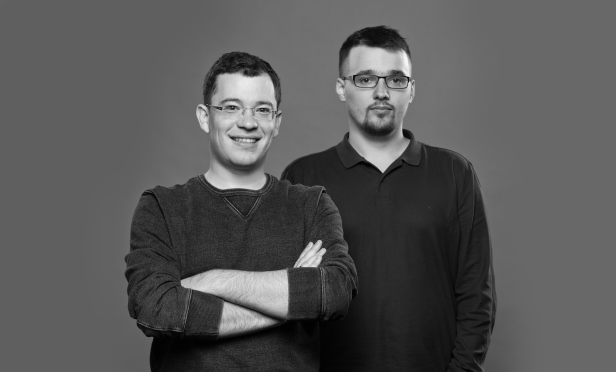 Openland founders Yury Lifshits and Steve Korshakov say the messenger benefits cities and developers.
Openland founders Yury Lifshits and Steve Korshakov say the messenger benefits cities and developers.
SAN FRANCISCO—To deliver a building, developers go through market research, deal sourcing, due diligence, contracting, financing, permitting and construction management. The actual on-site construction work typically takes less than 50% of the total timeline, while the rest is spent in back-and-forth communications between all involved parties, using email, phone, in-person meetings and actual physical paperwork. This communication process can lead to longer timelines and reduced outputs, ultimately driving real estate prices up and limiting global economic growth.
One type of messenging service seeks to streamline that process. Last month, Openland launched its professional messenger for the real estate industry, designed to streamline communication between owners, builders, investors, lenders, tenants, brokers and local officials. Openland's vision is supported by a new funding round from a group of 30 investors, including Gagarin Capital, Sinai Ventures, Soma Capital, Liquid 2 Ventures, Rainfall Ventures and Y Combinator. In this exclusive, Openland founders Yury Lifshits and Steve Korshakov discussed the concept, why it is necessary, and the benefits to cities and developers.
GlobeSt.com: Are there other companies/platforms in other industries that inspired your idea for Openland?
Lifshits: WhatsApp, Telegram and Facebook Messenger made personal communication much simpler, faster and more efficient. We want to do the same for business. Steve (Korshakov), one of two co-founders of Openland, was a lead developer at Telegram and the creator of its first Android app.
GlobeSt.com: Why does real estate need a dedicated messenger, and how did you design it?
Korshakov: Real estate needs a professional messenger that can be used to work on deals and projects between organizations. Right now, people are stuck between email with slow response times and long text, personal messengers although it's awkward to use Facebook for closing multi-million dollar deals, and Slack, but is a pain to use when talking to many organizations at once.
GlobeSt.com: How could other industries benefit from an industry-specific messenger?
Lifshits: We are at the dawn of professional messenger apps. Drift is popular for sales teams, Intercom for support teams and Angel.co for recruiters. Openland aims to serve the real estate community.
GlobeSt.com: Why is it more powerful to bring all key stakeholders into one platform/messenger rather than provide tools that improve current systems?
Korshakov: Some 30 years after the invention of email, we still don't have built-in basic features like knowing who's online, whether your email was read, or the ability to use your own templates for email responses and electronic signatures. It's easier to innovate in a new messenger app than to plug-in new functionality in Gmail and especially in Microsoft Outlook.
GlobeSt.com: Do you think industry-specific messengers will become more common in the future?
Lifshits: Only time will tell. Either there will be two to three dominant professional messengers across all industries or there will be specific ones for various industries such as healthcare, education and real estate, and functional roles of sales, support, business development and executive leadership.
GlobeSt.com: How will this benefit cities, suburbs and smaller towns?
Korshakov: We believe that in the future, developers will be consulting with city planners via professional chat applications. In other words, messengers can complement over-the-counter support services and speed up permitting processes. This will also make it easier to attract out-of-area investors and real estate developers.
GlobeSt.com: Could this impact the development trends for the ways we transport ourselves through cities?
Lifshits: Yes, with the advent of ridesharing, e-scooters and self-driving cars, cities need to re-evaluate and re-allocate all streets, sidewalks, parking lots and curb space. Messenger apps like Openland can streamline the planning process and increase community input, particularly from people who can't visit planning meetings in person due to work schedules.
GlobeSt.com: What are other emerging technologies that you're excited about that are industry-specific?
Korshakov: Another key trend in real estate is prefab construction and auxiliary dwelling units. Permit applications for these backyard units will lead to unprecedented additional workload for city planners and building departments. Messenger apps like Openland can help streamline permitting process and accelerate production of this critically important category of affordable housing.
© 2025 ALM Global, LLC, All Rights Reserved. Request academic re-use from www.copyright.com. All other uses, submit a request to [email protected]. For more information visit Asset & Logo Licensing.








